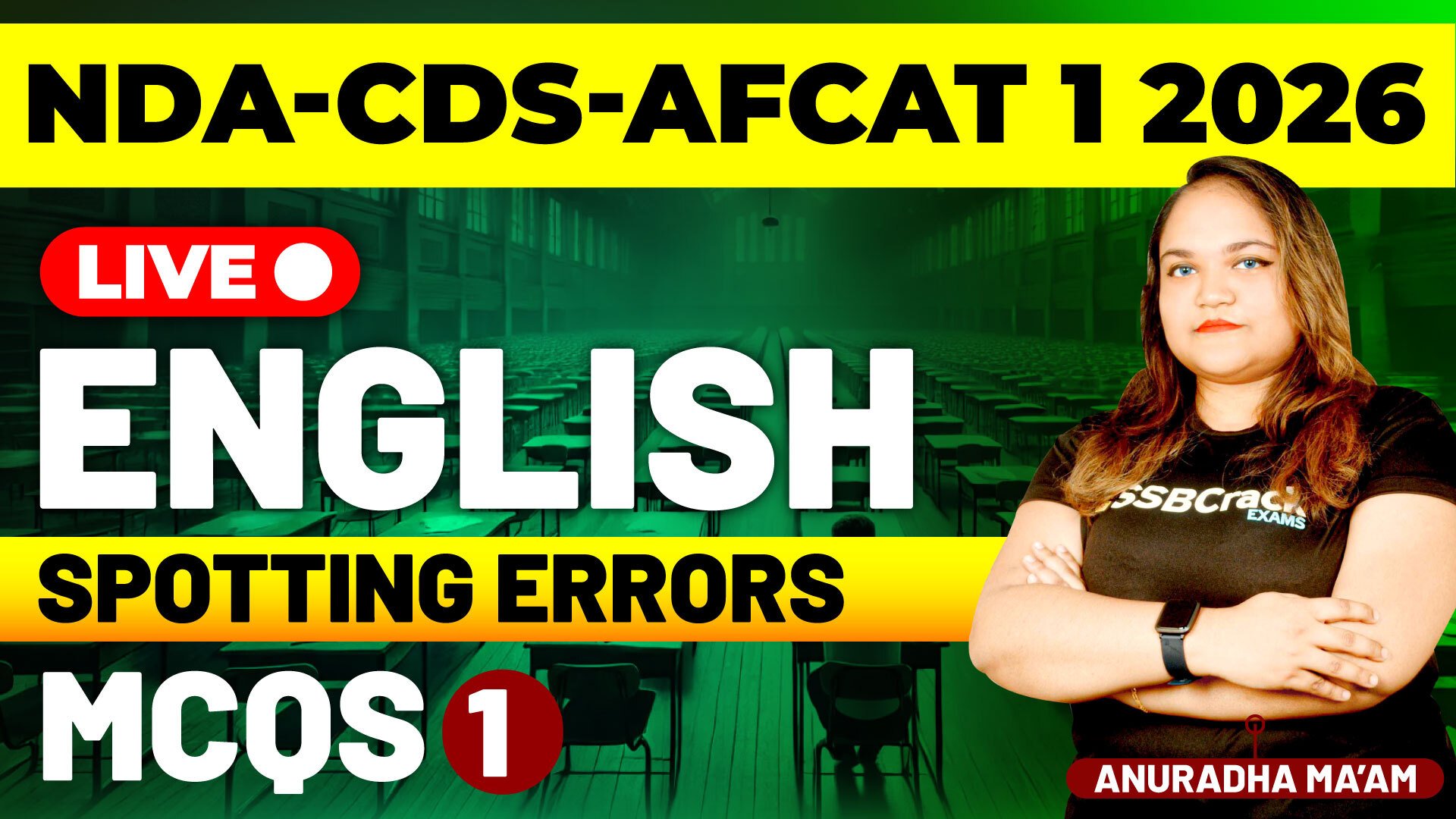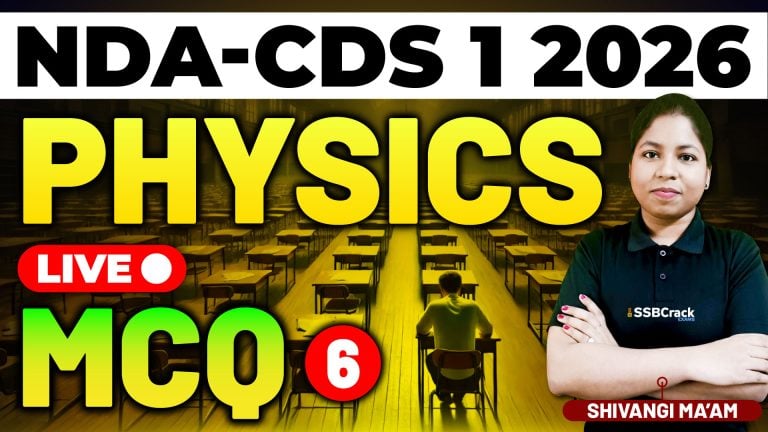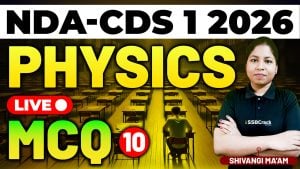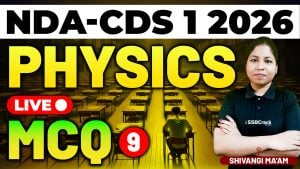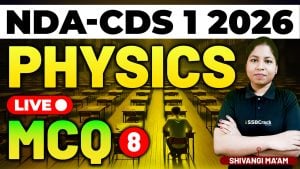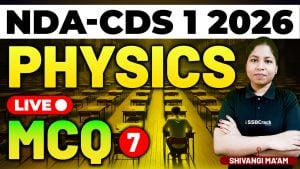The NDA, CDS & AFCAT 1 2026 English Live Class on “Spotting Errors” was conducted to help defence aspirants sharpen their grammatical accuracy and sentence analysis skills — two key components of the English section in all major defence exams. Spotting Errors is one of the most scoring yet challenging topics, as it tests the candidate’s command over grammar, vocabulary, and sentence structure simultaneously.
What is “Spotting Errors”?
The Spotting Errors section assesses a candidate’s ability to identify grammatical, structural, or idiomatic mistakes in a sentence. Each question is typically divided into four parts (A, B, C, D), with one part containing an error — or sometimes, no error at all.
Directions: Each item in this section has a sentence with three parts labelled as (a), (b) and (c). Read each sentence to find out whether there is any error in any underlined part and indicate your response on the Answer Sheet against the corresponding letter i.e., (a) or (b) or (c). If you find no error, your response should be indicated as (d).
Q) The news regarding (a)/ the earthquake survivors (b)/ are very disturbing. (c)/ No error (d)
Ans. (c)
Q) These equipments (a)/ must have (b)/ cost a fortune. (c)/ No error (d)
Ans. (a)
Q) His written statement (a)/ defers in several important respects (b)/ from his oral statement. (c)/ No error (d)
Ans. (b)
Q) I have ordered for (a)/ three cups (b)/ of coffee. (c)/ No error (d)
Ans. (a)
Q) One must not (a)/ boast of (b)/ one’s own success. (c)/ No error (d)
Ans. (d)
For more questions, check out NDA-CDS-AFCAT 1 2026 Exam English Live – Spotting Errors MCQs – Class 1
Topics & Rules Covered in the Live Class
During the Spotting Errors Live Class, students practiced MCQs based on the most frequently tested grammar rules from NDA, CDS, and AFCAT previous year papers. The session covered a comprehensive mix of concepts, including:
1. Subject-Verb Agreement
- Rule: The verb agrees with the main subject, not with the words between the subject and the verb.
Example: Each of the boys has done his work. ✅
2. Tense & Verb Forms
- Rule: Maintain tense consistency and correct auxiliary use.
Example: He has completed the work yesterday. ❌ (He completed the work yesterday. ✅)
3. Noun & Pronoun Usage
- Common errors in number, gender, and case.
Example: One should take care of their health. ❌ (One should take care of one’s health. ✅)
4. Adjective & Adverb Confusion
- Rule: Use adjectives with nouns, adverbs with verbs.
Example: She sings sweet. ❌ (She sings sweetly. ✅)
5. Articles & Prepositions
- Errors in usage or omission.
Example: He is good in English. ❌ (He is good at English. ✅)
6. Conjunctions & Conditional Sentences
- Rule: Follow correct pairings (e.g., No sooner…than, Hardly…when).
Example: No sooner did he reach the station when the train left. ❌ (No sooner…than ✅)
7. Common Idiomatic Errors & Redundancy
- Rule: Avoid unnecessary repetition and wrong phrases.
Example: He returned back home. ❌ (He returned home. ✅)
Class Highlights
The Spotting Errors Live Class was structured to make learning interactive, exam-oriented, and practice-intensive.
Key features included:
- Rule-Based Concept Explanation: Each rule was explained with logic and examples.
- MCQ Practice: Questions inspired by NDA, CDS, and AFCAT previous papers.
- Live Polls & Quizzes: To simulate real exam pressure and improve speed.
- Error Analysis: Step-by-step explanation of why an option is wrong or right.
- Quick Tips: Tricks to identify common traps (e.g., errors in tenses, modifiers, and articles).
Why Spotting Errors Is Crucial for Defence Aspirants
The Spotting Errors topic is not just about grammar — it reflects a candidate’s clarity of thought, precision, and alertness, all of which are qualities expected from a future officer.
By mastering this topic, aspirants develop:
- A keen eye for detail, essential for effective communication.
- The discipline to analyze language logically, improving written and spoken English.
- The confidence to eliminate errors quickly under time constraints.
Conclusion
The NDA, CDS & AFCAT 1 2026 English Live Class on Spotting Errors was designed to transform grammatical knowledge into exam confidence. By combining concept clarity, extensive MCQ practice, and strategy-based learning, aspirants learned how to spot even the subtlest mistakes within seconds.
For every defence aspirant aiming to secure a top score in the English paper, mastering Spotting Errors is non-negotiable — it is the bridge between understanding grammar and applying it with precision.
